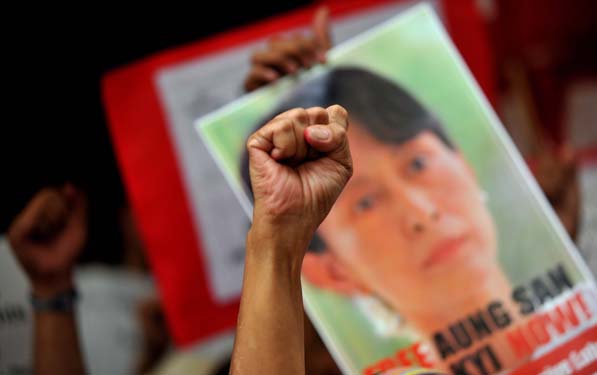Locked In, Locked Out

Instead they hold fast to the “Maubin Declaration”—an accord they reached in Maubin Prison in 2008 stating that the 88 Generation Student group will not support an election without the unconditional release of all political prisoners and unless the regime engages in an inclusive dialogue between all the political stakeholders.
Imprisoned 88 Generation leaders are resolute in their position that the conditions for the November election are unacceptable and, as a consequence, they are prepared to sit out the remaining 63 years of their 65-year prison sentences.
What can Burma’s political prisoners expect from the upcoming election? When the newly “elected” military regime is formed, it is likely that it will release a number of political prisoners in an attempt to promote a new, more humane image.
Such an amnesty, if it happens, should not be accepted as an act of compassion or the promise of things to come. A number of political prisoners who received sentences of two or three years after the September 2007 demonstrations are anyway due for release early next year. Unfortunately, the small act of “kindness” represented by an amnesty will allay the conscience of some in the international community who support the election. It will reinforce the voice that elections, no matter how fraught, can bring about change.
If the international community is serious about change in Burma, then it must denounce the election as devoid of legitimacy without the release of all political prisoners.
If the regime is genuinely interested in change it would have already released Aung San Suu Kyi, Min Ko Naing and other political prisoners, allowing them to freely contest the elections.
The past two months have seen the release of more than 200 prisoners, but no political prisoners were among them. This is hardly surprising and only indicative of the threat political prisoners pose to the regime.
We should not underestimate the power and beauty of words. Vaclav Havel, a former political prisoner who went on to become the first president of the Czech Republic, once described the world he lived in as “a system in which words are capable of shaking the entire structure of government, where words can prove mightier than ten military divisions.”
Bo Kyi is co-founder and joint secretary of the Assistance Association for Political Prisoners, based in Mae Sot, Thailand.
« previous 1 | 2 |
